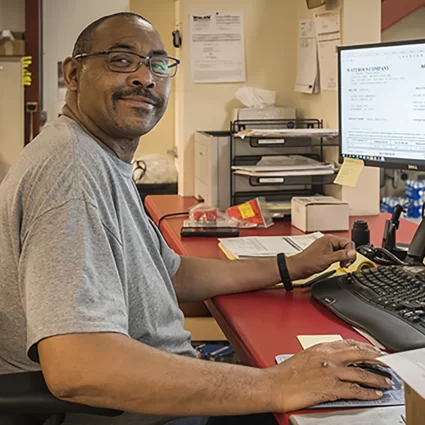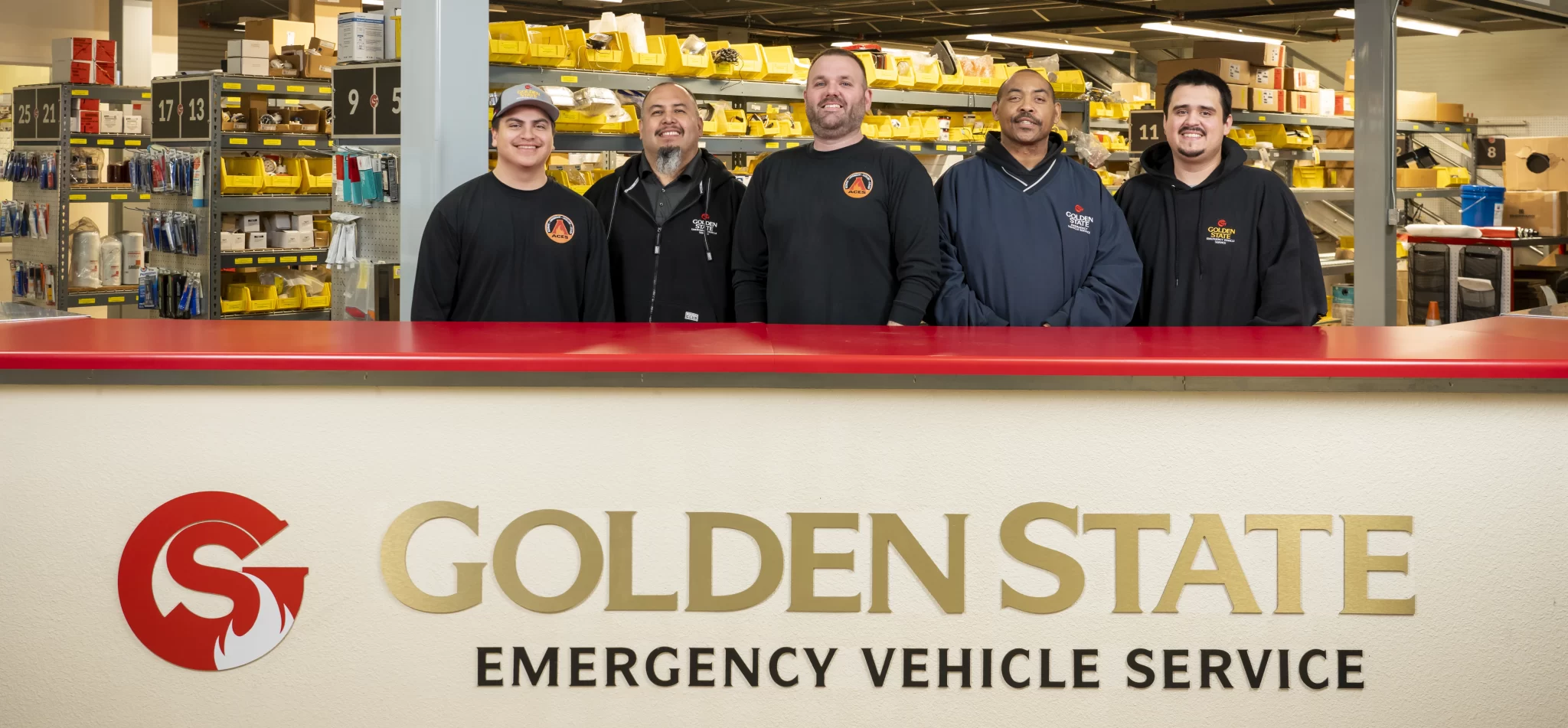Golden State Prioritizes Customers in Face of Parts Crunch
Just as there is no one reason why parts for fire apparatus have been difficult to come by in the past couple of years, there is no one simple solution to solve the problem.
The COVID pandemic certainly had an impact on parts manufacturing – both in terms of access to raw materials as well as in contributing to labor shortages that have reduced how many parts were built and drove prices up. Couple that with international supply chain issues and other logistical headaches and it’s clear why many owners of emergency vehicles as well as the companies that service them have had so many sleepless nights lately.
“We have found over time there is no consistency to the issues or parts,” said Daron Wright, President of Golden State Emergency Vehicle Service in Sacramento. “You cannot pattern which parts are solely affected nor can you predict which parts are going to be affected into the future. The issue is beyond just parts. It is with labor, it is with materials, it is with logistics, it is with price, it is with administration (getting quotes or invoices so we can close out our interaction with our customer, etc.).”

In Golden State’s case, the situation has led to unprecedented steps to keep customers’ vehicles in operation to protect their communities. The company has worked closely with Pierce Manufacturing – the maker of most of the vehicles GSFA sells and services – to prioritize access to parts. Where necessary to support existing departments that have out-of-service vehicles, Pierce is diverting parts that otherwise would have gone to new vehicle production or to another customer whose need is not deemed as urgent.
In one case, Wright said a customer needed a new radiator; without it, the vehicle would have been grounded going into peak fire season. Golden State was able to convince Pierce to ship a radiator that would have been part of a new vehicle – allowing GSFA’s customer to return its vehicle to service after a long delay.
“Usually when that request is made, we are desperate,” Wright acknowledged. “It is a last-ditch effort because we are asking Pierce Manufacturing to take a part from a new truck or another customer that is in active production. And we are asking them to ship it to us so we can get our customer back up and running. The importance of that is we are asking Pierce to take a hit and disrupt their production schedule with another customer so we can help another customer in immediate need.”
The Golden State leader is complimentary of Pierce’s response to the parts shortage.
“Everyone is dealing with the same issues,” Wright said. “I believe Pierce is much like all of its dealers where they are not accepting just the normal excuses. This is an industry where you cannot accept the norm. If you do, people and communities are impacted. We are all working together, more creatively than we ever have, to deliver upon the daily needs of our customers.”
Stocking More Inventory
The company also has cast a wider net to acquire parts – whether from the original equipment manufacturers (OEMs) or by cooperating with other Pierce dealers to swap parts. Golden State also has added new parts sources within Northern California, something that is likely to continue even if the current parts crunch eases.
Creatively Working Together
Golden State also suggests that customers stock up on “mission critical” parts themselves in an effort to avoid downtime for vehicles.
“Mission critical parts are anything that would deem the unit out of service,” Wright explained. “Out of service criteria is different from customer to customer, but generally anything that restricts the unit from starting, pumping water, stopping safely, fuel leaks, aerial operations, etc. Anything that would not allow that unit to safely operate and tend to a person in need of help or suppress an active fire.”
Wright is encouraged by how customers have responded.
“I think, by now, everyone understands what we are and have all been dealing with,” he said. “I have been impressed with customers’ understanding and willingness to be creative with us in addressing outstanding parts issues. This is not an easy problem to deal with, and these are emergency response vehicles, where there are no excuses as to why something is not available. Folks are coming to work every day with the right mindset … which is we will figure this out one way or another.”

